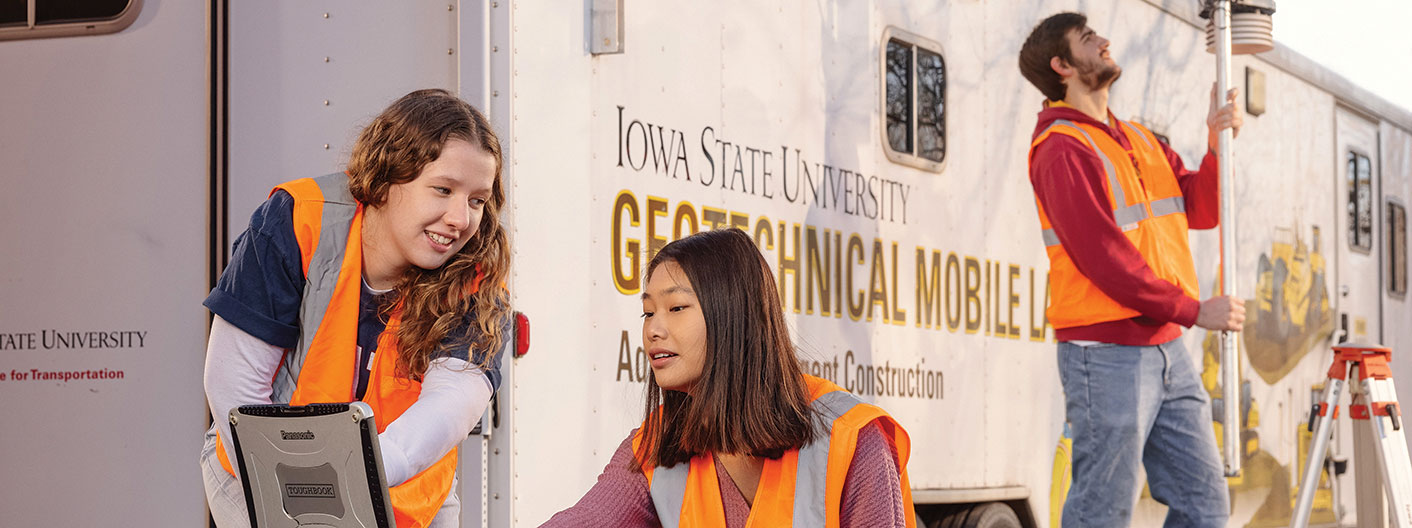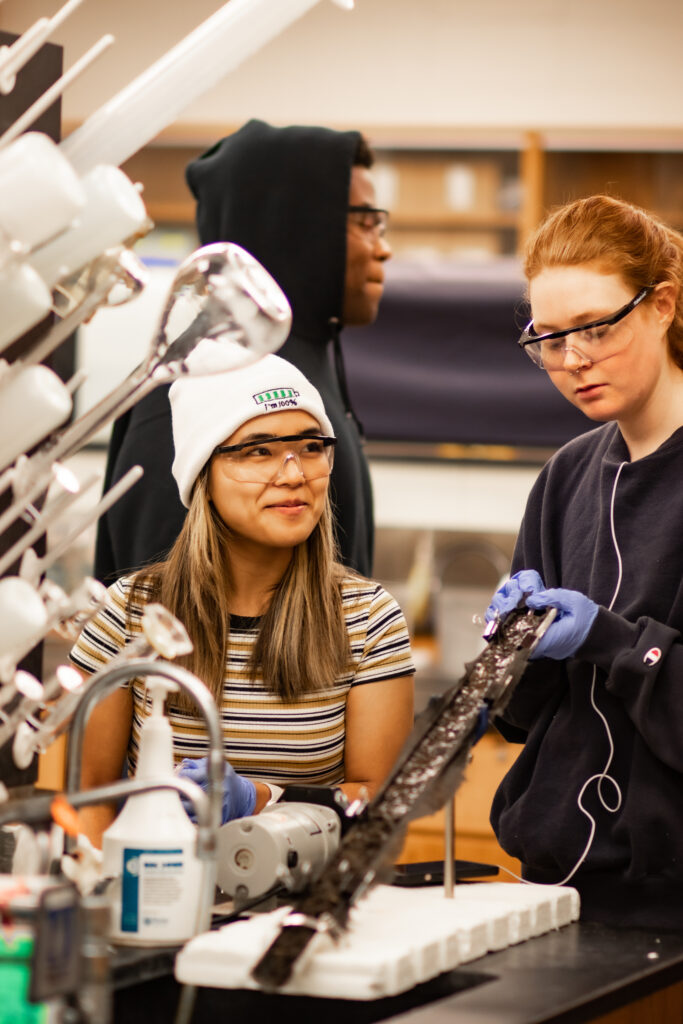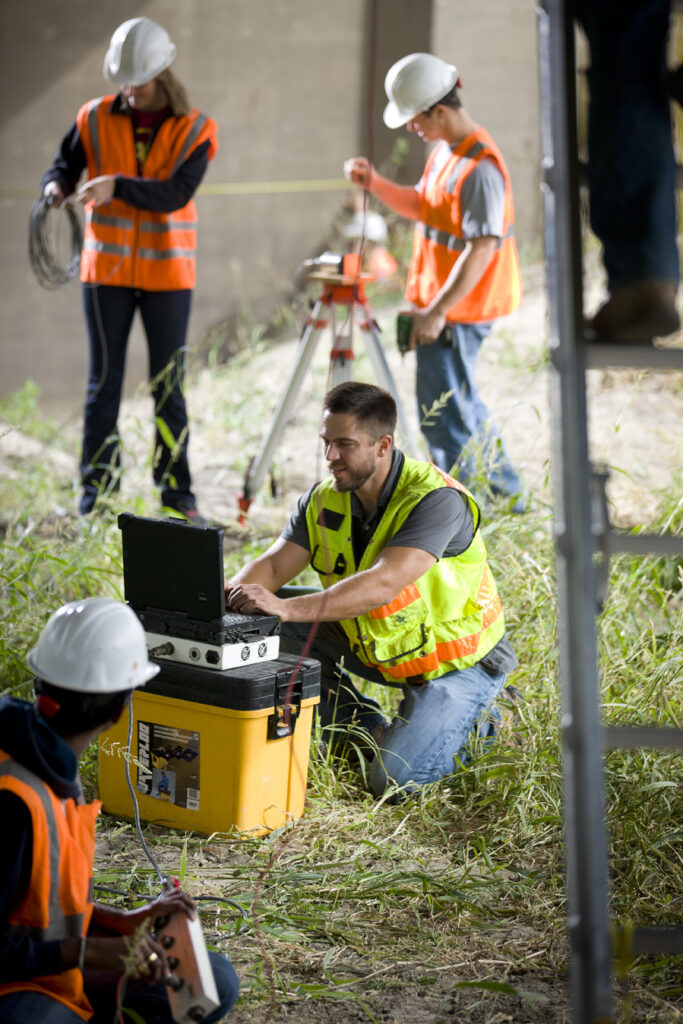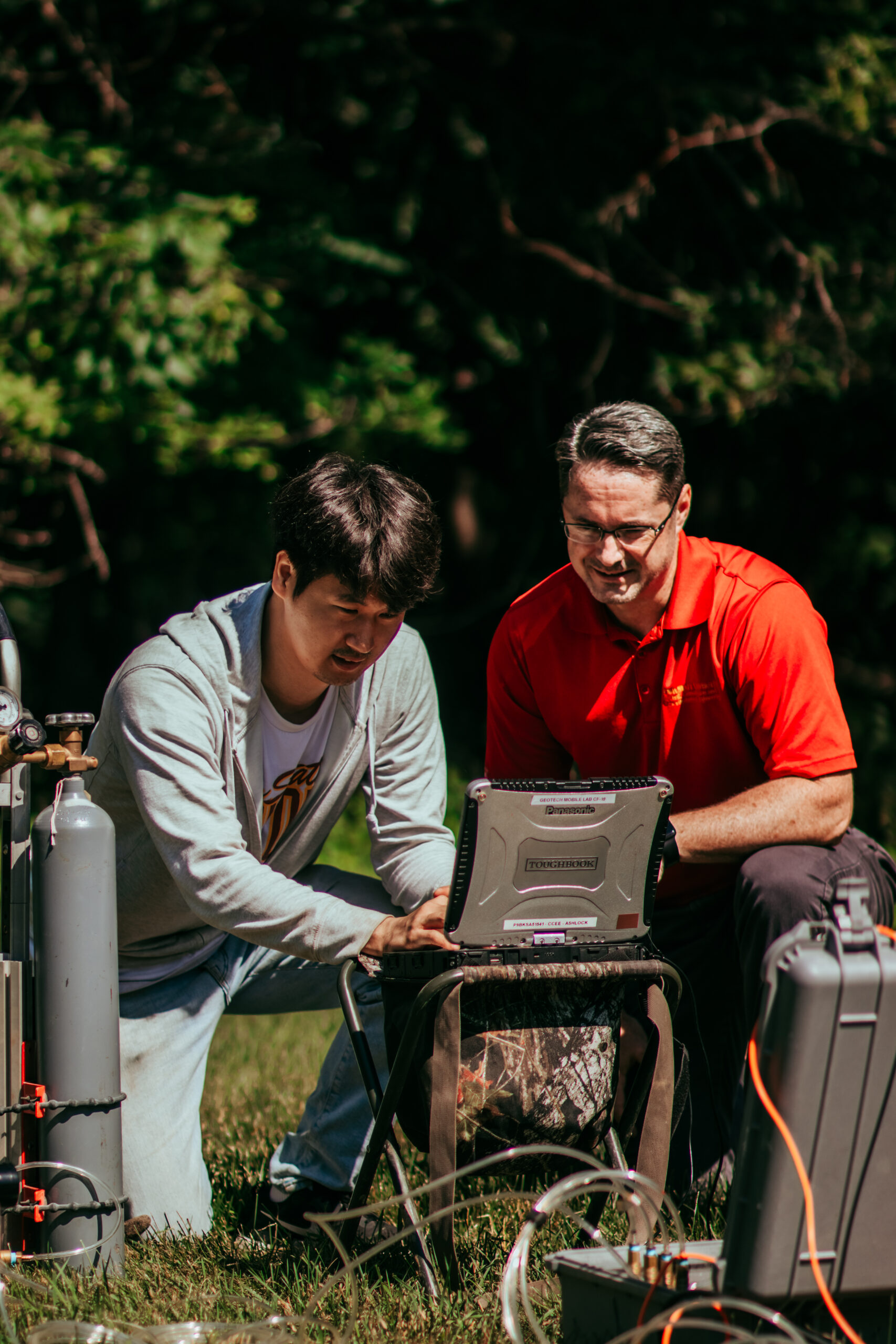Whatever your goals, your success is important to us! Our programs, labs, hands-on learning environments and facilities will give you a competitive advantage to address society’s greatest needs.
Integrated curriculum: Our integrated curriculum combines class assignments, projects and team development with professional training in communication, ethics, accounting and management. Because each project is unique, we focus on problem solving based on in-depth studies of the environment, economics, materials and public needs. You will learn how to design solutions and analyze problems while writing proposals, working with subcontractors, planning, budgeting and mediating difficult situations.
Experienced faculty: Our faculty work with professionals in the field to research and develop:
- Tools for assessing the structural safety of materials used in buildings vulnerable to earthquakes, tornados and hurricanes
- GPS machine-integrated soil compaction technology
- Web-based roadway and airport weather observation systems
- Laser scanning and video technologies in the transportation industry
- Water and waste treatment strategies that provide a quality supply while extracting usable energy and reducing adverse effects on our environment
Real-world learning opportunities: Co-ops and summer internships are the bridge between classwork and the professional practice of engineering. Most of our students take part in one or more internship or co-op opportunities prior to graduating. Every semester, our college hosts the largest career fair in the nation, putting you in direct contact with national and international industry leaders. You will hone the skills you learn in our hands-on labs and classes while gaining work experience.
Curriculum Focus Areas
Our program focuses on experiential learning with multiple laboratory experiences in our classes such as laboratories in soils, materials, environmental and surveying. We also offer options that make our students versatile in the job market. Select an emphasis in:
- Environmental: Remove contaminants from water, reduce hazardous and solid waste volumes, eliminate air pollutants and develop groundwater supplies.
- Geotechnical: Develop projects below ground and determine ways to support structures on and in the ground. Create methods to stabilize soil conditions.
- Structural: Design structures that can withstand winds, extreme temperatures, hurricanes, earthquakes and other natural forces.
- Transportation: Use big data to determine ways to meet the increasing travel needs of people, goods and materials on land, air and water.
- Materials: Help to develop and apply construction materials that are resilient and sustainable.






